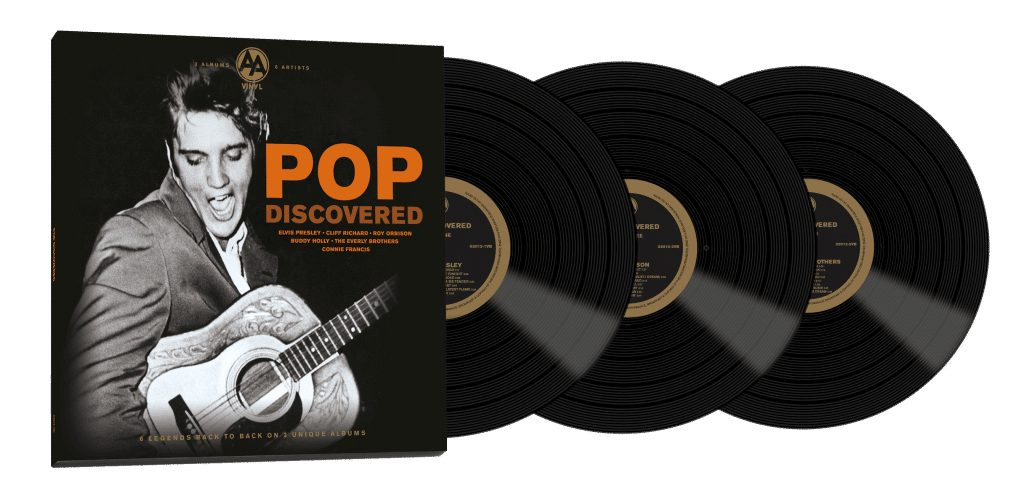
POP DISCOVERED
In the era of drive-ins, bobby sox and soda bars, popular music in America exploded. This is the golden age of pop in which the music industry contributed significantly to the development of a new market: The teenager. Standing in stark contrast to the crooners, swingers and big band sounds much loved by their parents, teenagers now had their own culture, language and idols. Theirs was a very different world to the one their parents knew when they were young. World War II was over, The Great Depression long gone, and free TV had come to America and because of this, pop stars had to be visually appealing in how they looked and how they performed. Artists aimed at the female teen market like Elvis Presley and Cliff Richard were subjects of widespread moral panics because of their perceived corrupting influence on young people – especially young women. But it wasn’t all about male teen idols, the fifties pop scene was a hungry beast and it needed to be fed continuously with new artists and new sounds. Professionally produced and packaged, the pop song came into its own in this decade as a new, affluent teenage market emerged. Teens wanted a constant diet of new sounds. Luckily the industry was geared up to feed them. Hit factories were certainly nothing new, but those housed in the Brill Building in New York did it the best. The Brill Building contained over 150 music businesses – by 1962 it peaked at 165 – making it a one-stop-shop for wannabe pop stars. Connie Francis started out there as a demo singer, Elvis Presley was based there, as were his key songwriting team, Leiber and Stoller.
Pop music was being consumed by teens in new ways, too, via the ever-expanding local radio scene, which in turn led to increased record buying. At the same time, technological innovations such as the 45rpm single and the in-car radio revolutionized the way music could be consumed. The American music industry was thriving. In the post-war boom, the demand for records led to the creation of over 1000 independent record labels between 1948 and 1954. These new labels became adept at spotting and producing new talent. A clear indication of their impact can be seen in the number of million-selling singles the independent labels achieved. Between 1946 and 1952, small labels accounted for only three per cent of million-selling singles in America. By the mid-fifties, the tables had turned and the new independents became dominant, chalking up 70 per cent of million-selling records between 1955 and 1959. Such output suggests a formula. The pop formula – firmly codified in the fifties – forces diversity through the filter of familiarity and this is how artists as different as Roy Orbison, Buddy Holly and the Crickets and Connie Francis could achieve success alongside the more obvious appeal of Cliff, Elvis, and the Everly Brothers.

